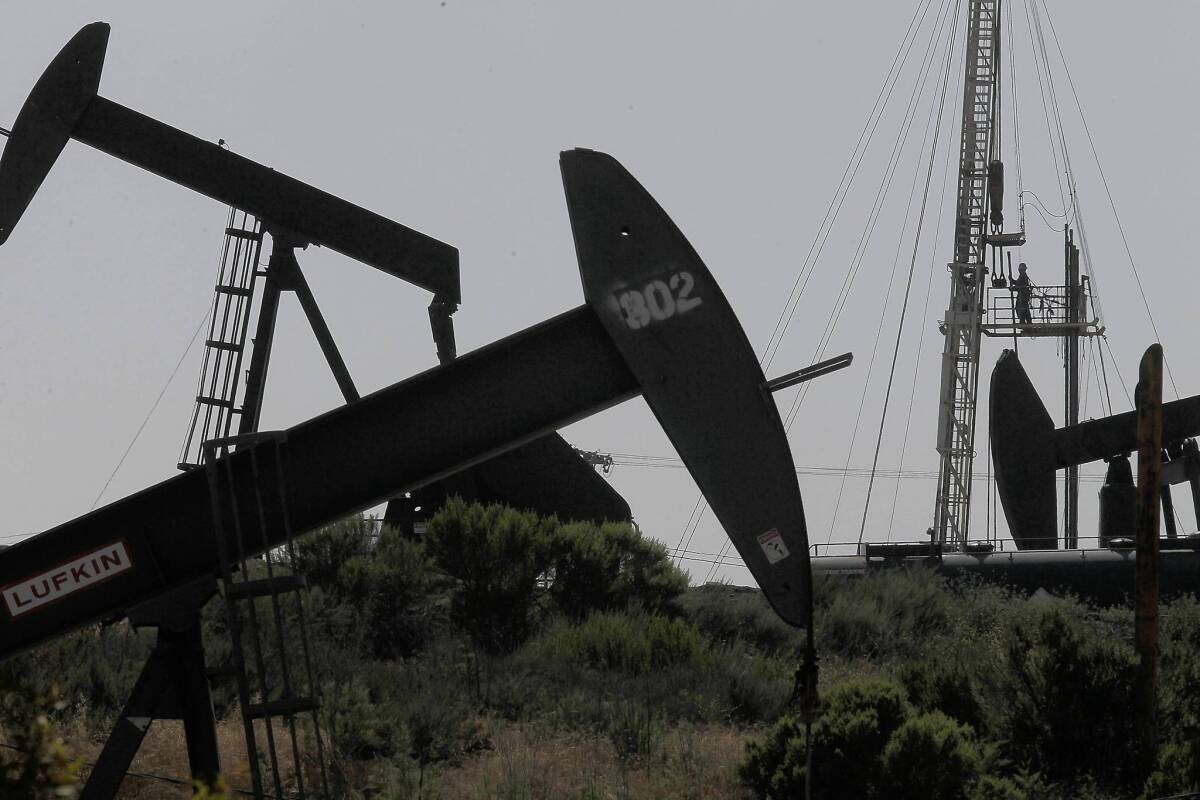Coalition asks Gov. Jerry Brown to halt fracking in California

SACRAMENTO — A coalition of more than 100 environmental and political activist groups is denouncing oil fracking legislation as too weak and calling on Gov. Jerry Brown to order an immediate halt to the controversial drilling practice.
“The truth is that there is no proven way to protect California from fracking besides prohibiting this inherently dangerous practice,” said the letter delivered to the governor’s office Wednesday.
Fracking, formally known as hydraulic fracturing, is a drilling technique that employs a high-pressure mixture of water, sand and chemicals deep underground to loosen oil and natural-gas deposits locked in shale.
The oil industry supports the need for fracking as a way to get more oil; opponents say that it’s bad for underground water supplies and that it causes water and air pollution.
Wednesday’s letter is the latest attempt by opponents to convince the governor that fracking runs counter to Brown’s public commitment to renewable energy and combating global warming. The coalition also has submitted petitions with more than 150,000 signatures asking Brown for the moratorium.
They also oppose legislation moving through the Legislature by Sen. Fran Pavley (D-Agoura Hills) and say in the letter that SB4 “would allow fracking operations to permanently pollute vast quantities of California’s precious water.”
The bill, which passed the state Senate and is before the Assembly Appropriations Committee, is backed by most national environmental organizations. Environmental groups are split on the bill, with the letter writers seeking a ban on fracking and the larger groups pushing instead for better regulation. The Sierra Club has staked out a middle position, asking for more disclosure than the Pavley bill would mandate.
The oil industry is eager to expand the use of fracking in the Monterey Shale Formation in coastal and central California, which contains an estimated 15.4 billion barrels of recoverable oil. Fracking supporters also oppose the Pavley bill in its current form and are pushing for amendments to satisfy their concerns.
Brown has not taken a public stance on the bill. His office did not comment on the letter asking for him to declare a moratorium.
But at a May news conference, the governor spoke in favor of exploitation of the Monterey shale oil because it would be a financial boon for California if done safely.
“I have to balance my strong commitment to deal with climate change and renewable energy with what could be a fabulous economic opportunity,” Brown said.
Brown has directed the state Department of Conservation to come up with proposed regulations that could be ready in draft form this fall.
Pavley defended her bill as a first step in regulating fracking and a related well-stimulation method that injects acid into shale formations. Her bill also would require oil companies to get permits and notify nearby residents before starting fracking operations.
The notifications would include public disclosure of chemicals injected underground.
“I want to make sure we have a bill that requires disclosure, that can pass the Legislature and get a signature from the governor,” Pavley said.
Oil companies counter that they’ve safely used fracking in California wells for 50 years without any major problems. Nevertheless, the Western States Petroleum Assn., a trade group, concedes that some regulation of their industry may be needed.
But Becky Bond, political director of Credo, which she described as a California-based social change group, insisted that there’s no safe way to use fracking that doesn’t cause water and air pollution. “Anything less than a moratorium is reckless and unacceptable,” she said.
Twitter: @marclifsher







